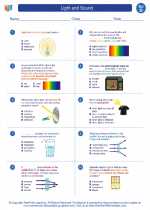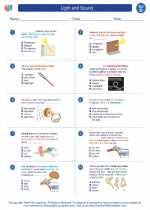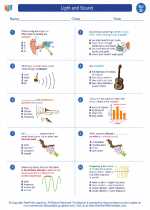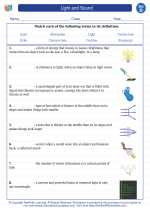Medicine
Medicine refers to the science and practice of diagnosing, treating, and preventing disease. It encompasses a wide range of disciplines, including pharmacology, anatomy, physiology, biochemistry, and more. The goal of medicine is to promote health and well-being, alleviate suffering, and cure or manage illness and injury.
Branches of Medicine:
- Internal Medicine: Focuses on the diagnosis and treatment of diseases in adults.
- Pediatrics: Specializes in the care of infants, children, and adolescents.
- Surgery: Involves operative procedures for the treatment of injuries and diseases.
- Obstetrics and Gynecology: Deals with the female reproductive system and childbirth.
- Psychiatry: Focuses on mental health and disorders of the mind.
- Pharmacology: Studies the effects of drugs and medications on the body.
Key Concepts in Medicine:
- Anatomy: The study of the structure and organization of the body and its parts.
- Physiology: Focuses on the functions and processes of the body and its systems.
- Pathology: Involves the study of the nature and causes of diseases.
- Pharmacology: The study of drugs and their effects on the body.
- Medical Ethics: Addresses moral issues and dilemmas in the practice of medicine.
Study Guide:
To understand the field of medicine, it's important to grasp the following key areas:
- Learn the major branches of medicine and their respective areas of focus.
- Understand the basic concepts of anatomy, physiology, and pathology.
- Explore the role of pharmacology in medicine and the impact of drugs on the body.
- Consider the ethical considerations and responsibilities in the practice of medicine.
By mastering these fundamental aspects of medicine, you'll gain a comprehensive understanding of this vital field and its impact on human health.
[Medicine] Related Worksheets and Study Guides:
.◂Science Worksheets and Study Guides Fourth Grade. Light and Sound
Study Guide Light and sound
Light and sound  Worksheet/Answer key
Worksheet/Answer key Light and sound
Light and sound  Worksheet/Answer key
Worksheet/Answer key Light and sound
Light and sound  Worksheet/Answer key
Worksheet/Answer key Light and sound
Light and sound  Vocabulary/Answer key
Vocabulary/Answer key Light and sound
Light and sound  Vocabulary/Answer key
Vocabulary/Answer key Light and sound
Light and sound  Vocabulary/Answer key
Vocabulary/Answer key Light and sound
Light and sound 

 Worksheet/Answer key
Worksheet/Answer key
 Worksheet/Answer key
Worksheet/Answer key
 Worksheet/Answer key
Worksheet/Answer key
 Vocabulary/Answer key
Vocabulary/Answer key
 Vocabulary/Answer key
Vocabulary/Answer key
 Vocabulary/Answer key
Vocabulary/Answer key

The resources above cover the following skills:
PHYSICAL SCIENCE (NGSS)
Waves and their Applications in Technologies for Information Transfer
Students who demonstrate understanding can:
Develop a model of waves to describe patterns in terms of amplitude and wavelength and that waves can cause objects to move.